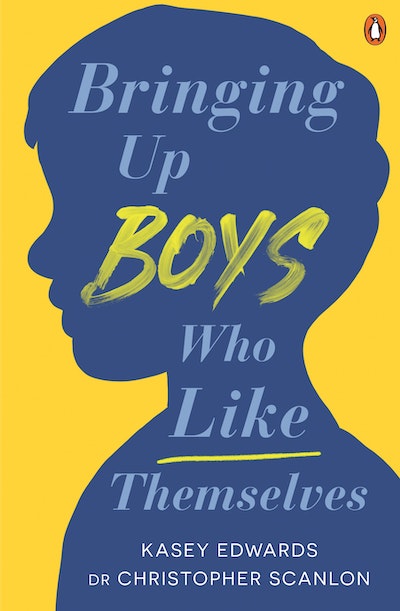- Published: 30 May 2023
- ISBN: 9780143778738
- Imprint: Penguin Life
- Format: Trade Paperback
- Pages: 272
- RRP: $36.99
Bringing Up Boys Who Like Themselves
Extract
We were sitting in a cafe with three friends and excitedly telling them about our book Raising Girls Who Like Themselves, when, to our surprise, tears started to well in the eyes of one of our friends. ‘My son doesn’t like himself,’ she said, reaching for a tissue. The second friend sat back in her chair, ran a hand over her face and whispered, ‘Mine doesn’t either.’ All eyes turned to our third friend, also a mother of a boy.
She paused for a moment before speaking. ‘I don’t want to say this out loud,’ she said, her voice cracking. ‘But if I’m being really honest, I have to say my boy hasn’t liked himself for a while.’ We soon noticed our friends weren’t the only ones with this concern. The questions started coming in on social media, in our webinars and in emails, and they haven’t stopped: ‘What can I do so that my boy will like himself too?’
All these people are right to ask this question. Because, as with girls, absolutely everything that we hope and dream of for our boys starts with bringing them up to like themselves. A boy who likes himself will be successful, striving for his goals because he has faith in his ability to achieve them. When he stumbles he will have the inner strength and resources to pick himself up, learn from his mistakes and move on. A boy who likes himself will have the courage to apologise and make amends rather than leaving a trail of resentment and unresolved conflict. He will be respectful and kind because he will not have to denigrate others or exploit their weaknesses to feel okay about himself. He will have the self-belief to stand up to his critics – and his friends – when it’s the right thing to do. He will have the strength to face and deal with his own pain rather than trying to repress it or offload it onto someone else. A boy who likes himself will prioritise his physical and mental health because it is natural to care for what you love.
We spent ten years researching how to raise a girl who genuinely likes herself, believes in herself, and will go into the world ready for anything. We didn’t deliberately exclude boys from our research and writing; since we are the parents of girls they naturally became our focus. As it turned out, we realised many of the strategies we covered in Raising Girls could help anyone – boys, non-binary children and adults. We have heard from many parents who have applied our strategies to their boys and who have seen profound and life-changing improvements in their boys’ self-belief and wellbeing. We share some of these stories in the following chapters. We have also heard from many women who have said that our strategies allowed them to re-parent themselves and to understand why they grew up feeling like they were never good enough. And, most importantly, that it wasn’t their fault.
But no matter how much we may wish it were otherwise, there are significant differences in how the world treats girls and boys; differences that affect how they experience the world. Research shows that from the moment a baby boy takes his first breath the world will treat him differently to how it treats girls. This will happen even if his parents are aware of gender stereotypes and try to parent neutrally.
For decades people have been debating, campaigning and legislating to dismantle the social and cultural conditions that limit and restrict our girls. And rightly so. But many of our ‘social rules’ are also restrictive and damaging to boys. Our society still often expects boys and men to be tough, to not cry, to suppress their emotions, to like sport and hate dancing, to assert their dominance and always be in control, and to never show weakness or ask for help. As Rachel Giese writes in Boys, ‘We believe that girls can and should play sports, that they’re capable of excelling at science and math, that they can be both vulnerable and strong, that they may grow up to be soldiers, presidents, teachers, doctors, and engineers . . . [b]ut when it comes to challenging gender stereotypes and their effects on boys, we haven’t been nearly as thorough or thoughtful.’2 There is still a ‘right’ way to be a boy and man. And, as we’ll see in the next section, this ‘right’ way is suffocating them, stunting their growth, sucking the joy out of their lives and in some cases literally killing them.
Bringing Up Boys Who Like Themselves Kasey Edwards, Christopher Scanlon
The seven pillars all boys need to grow into well-rounded, thriving young men who are ready for anything.
Buy now











